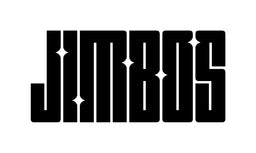Removing Pet Hair from Your Car Interior
Pet hair is one of the toughest interior challenges detailers face. It clings to carpets, sticks to cloth seats, and embeds deep into fibers. But with the right tools and technique, you can remove stubborn pet hair quickly and safely — without frustration or damage.
Estimated Reading Time: ~8 minutes
Why Pet Hair Is So Hard to Remove
Pet hair has a static charge and rough edges that make it cling to fabrics. It weaves itself into carpet and upholstery fibers, making simple vacuuming ineffective. The trick is to break the static bond and lift the hair mechanically before vacuuming.
- → Hair embeds deeply in seat seams and carpet fibers
- → Static electricity makes it cling to surfaces
- → Oils from pets make hair even harder to remove
Step 1: Start with a Dry Vacuum
Begin by vacuuming the entire interior with a crevice and upholstery tool to remove loose hair. You’ll remove 50–70% this way. Don’t rush — go slowly to let the suction lift as much as possible.
Step 2: Use Friction to Break the Bond
Use a Scrub Buddy Pad or rubber pet hair brush to loosen stubborn hair. Lightly rub the pad in one direction to gather hair into clumps. Once clumped, vacuum again to extract completely.
For delicate fabrics, use gentle pressure — the Scrub Buddy’s texture is safe for automotive materials but still strong enough to pull up embedded hair.
Remove Stubborn Pet Hair Fast
The Scrub Buddy Pad safely lifts embedded pet hair and debris from cloth seats, carpets, and textured surfaces without damage.
Shop Scrub Buddy Pad 3-Pack Buy on AmazonStep 3: Mist and Wipe for a Final Clean
After removing the majority of pet hair, mist Complete Cabin Cleaner onto a microfiber towel and wipe down interior plastics, door panels, and trim. This removes dander and oils left behind by pets, helping neutralize odor and restore a fresh feel.
Step 4: Prevent Future Buildup
Apply a light fabric protectant or keep seat covers on for pets that ride frequently. Regular vacuuming and brushing after every trip make deep cleaning much easier later.
Pet Hair Removal Tools Comparison
| Tool | Effectiveness | Surface Safety | Recommended? |
|---|---|---|---|
| Lint Roller | Low – only picks up surface hair | Safe | ⚠️ For light use only |
| Rubber Brush | High – great for carpets and seats | Safe on most surfaces | ✅ Yes |
| Scrub Buddy Pad | Very High – removes embedded hair fast | Safe on all interior materials | ✅✅ Top Choice |
Detail Faster with the Right Tools
The Scrub Buddy Pad is your go-to tool for removing pet hair, dust, and grime from all interior surfaces with ease.
Shop Scrub Buddy Pad 3-Pack Buy on AmazonPro Tips for Pet Hair Removal
- → Use short, firm strokes when brushing carpets.
- → Always vacuum after loosening hair with a brush or pad.
- → Use a rubber glove for quick touch-ups between deep cleans.
- → Mist lightly with water to reduce static before brushing.
- → Keep pets brushed regularly to reduce shedding inside the car.
Related Reading
- Vacuuming Tips for a More Thorough Interior Clean
- How to Detail a Family Car Interior (The Real-World Way)
- How to Avoid Interior Over-Saturation
- How to Keep Interiors Cleaner Longer
- How to Set Up an Interior Detailing Kit
FAQs
What’s the best tool for removing pet hair from car interiors?
The Scrub Buddy Pad works best. Its textured surface grabs and lifts embedded pet hair safely from fabrics.
Can I use a lint roller for pet hair in cars?
Only for light surface cleanup. For embedded hair, use a brush or pad designed for detailing.
Does water help remove pet hair?
Yes. A light mist of water or anti-static spray can help loosen hair before brushing and vacuuming.
Will pet hair damage my vacuum?
It can clog filters or hoses over time. Clean your vacuum filter after each use when removing pet hair.
How do I prevent pet hair from sticking to my seats?
Use seat covers or apply a light fabric protectant. Regular brushing and vacuuming after trips prevent buildup.



